#imperium augustus
Text
"For Rome, who had never consented to fear any nation or people, did in her time fear two human beings: one was Hannibal and the other was a woman."
~ W. W. Tarn, Cambridge Ancient History
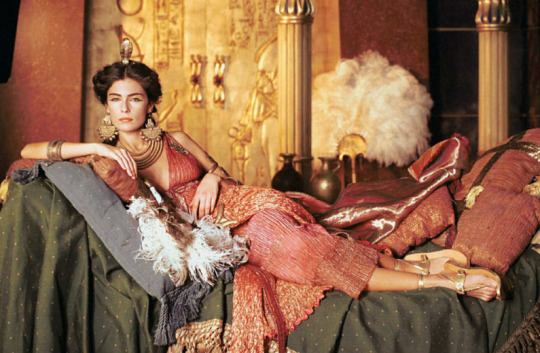
Anna Valle as Cleopatra in Imperium: Augustus (2003)
#cleopatra#cleopatra vii#antony and cleopatra#Anna Valle#women#women in history#imperium augustus#augustus#ptolemaic egypt#ptolemaic dynasty#ancient history#ancient rome#roman republic#roman history#roman empire#rome#girl power#quotes#miniseries#mini series
52 notes
·
View notes
Text
So I just saw the first episode of Imperium: Augustus.
Thanks to the terrible interface for Amazon Prime, which also renamed the show and put it next to the documentaries, my family and I mistook this for a documentary until it was too late. And that’s unfortunate, because if you go in expecting historical accuracy you’re gonna be frustrated.
You may enjoy it if you just want to watch a fun drama set in ancient Rome. It’s cool to see most of the characters played by actual Italians, and Agrippa and Maecenas get the prominent roles they deserve. Livia even states at one point that Augustus “loved [Agrippa] more than any woman.”
I do wish they hadn’t made Maecenas’ sexuality a joke. He’s a stereotypical effeminate queer here, rather than a full character who happens to be queer, likes the arts, and makes jokes sometimes. And I don’t like that they portrayed Livia as a cold-blooded murderess. Most of the other inaccuracies can be excused for drama purposes, but those bits bug me.
That said, the show did make me laugh several times:
At one point Augustus says Julia has given him “two wonderful grandsons.” Which becomes a subtle diss if you know that Julia had three sons, and the third, Agrippa Postumus, was a Huge Disappointment and never appears in the show. He was so bad they wrote him out!
Octavian saves Livia from a gang of thugs when they’re teenagers, and she starts flirting with him until she hears he’s Caesar’s nephew, whereupon she slams the door in his face.
Caesar: “You’re ill, you shouldn’t shovel a trench with the soldiers.” Octavian: “No! I want to!” [He grabs a shovel. Scene immediately cuts to Octavian passed out in a tent.]
Caesar directs Octavian’s attention to a view of Rome from the balcony, a vista that is very obviously a painting.
Caesar gets murdered in the Curia Julia, which A) has his name on it and B) did not exist at this time.
Decimus Brutus is a murderer of Caesar, enemy of Antony and critical to the plot after Caesar’s death, yet never appears onscreen. He’s a ghost!
Maecenas: “The three of us will rule the world. Octavius is the politician. Agrippa is the soldier.” Agrippa: “And what are you?” Maecenas: “I’m the mouth.” [wiggles eyebrows]
Honestly, everything Maecenas says and does is hilarious, even if he is a stereotype. At one point he’s interrupted while shaving his legs and gives Octavian first aid while in only a loincloth. Even better when you know this was a (probably false) accusation lobbed at Octavian.
Octavian skips the complex five-way political maneuvering in 44-43 BCE by straight-up bringing the Macedonian legion into the Senate house and forcing them to make him consul. Yes, the whole legion. It is never explained where the legion came from.
Caesar’s plan at the battle of Munda is apparently “charge Sextus Pompeius’ fort.” No artillery, no tactical plans, nothing. The first line of troops is immediately slaughtered by a rain of arrows from the defenders and we get a rather awkward shot of the second line of legions staring at a field full of the dead. Caesar reacts by removing his helmet, charging the fort himself, and making everyone follow head-on again. The Pompeians, for no apparent reason, leave their highly advantageous fort and get slaughtered.
Anyway, the show isn’t what I’m looking for, but if you just want a good drama (or enjoy poking fun at inaccuracies) you may like it.
#imperium augustus#octavian#livia#julius caesar#historical drama#homophobia mention#jlrrt speaks#jlrrt watches
51 notes
·
View notes
Text
sincerely sorry for the continued imperiumposting but i can't get over this. ten seconds i can't i. look. llook. i can't do this today. i c
#IM SO ILL#sick in the head sick sick sick s#the chokehold this objectively terrible movie has on me???? stop??#imperium augustus#they should eat each other !!#imperiumposting
8 notes
·
View notes
Photo

Peter O'Toole and Sergio Ercolessi
on the set of Imperium: Augustus
Imperium: Augustus (2003)
(Also Known As: Augustus)
directed by Roger Young
Peter O'Toole
as Augustus Caesar
* Sergio Ercolessi: first assistant director
#peter o'toole#sergio ercolessi#imperium augustus#augustus#on the set of#on the set of imperium augustus#on the set of augustus
4 notes
·
View notes
Text

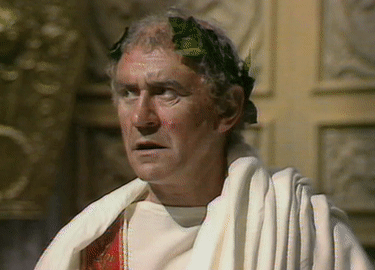

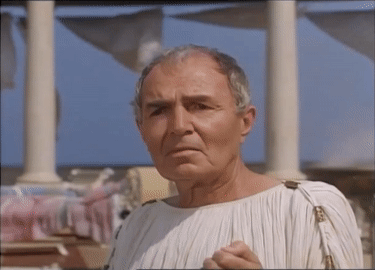
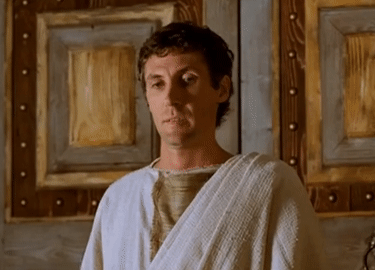



16 November: Emperor Tiberius was born in 42 BC. Here are some of his portrayals on screen:
André Morell in The Caesars (1968)
George Baker in I, Claudius (1976)
Peter O'Toole in Caligula (1979)
James Mason in AD (1985)
Michele Bevilacqua in Imperium: Augustus (2003)
Max von Sydow in The Final Inquiry (2006)
Giovanni Carta in Barbarians (2020)
Benjamin Isaac in Domina (2021)
#emperor tiberius#tiberius julius caesar augustus#the caesars (1968)#i claudius#caligula 1979#ad (1985 miniseries)#imperium: augustus#august: the first emperor#the final inquiry#netlix barbarians#domina sky#tbh andré morell is probably the best#funny thing: peter o'toole got to play both tiberius and augustus#not sure about barbarians tiberius#he seems way too smarmy#the only complaint i have about domina is that “bad Tiberius” personality#ancient rome
45 notes
·
View notes
Text
Instrument of Your Father's Will
"Have I ever been anything but an instrument to fulfill your destiny!"
- Julia the Elder to Augustus, Imperium: Augustus
"Ha, Freche du! Frevelst du midi? Wer bist du, als meines Willens blind wählende Kür?"
- Wotan to Brünnhilde, Der Ring des Nibelungen
"Princess Saera watched from the window of her cell. Jonquil Darke, her gaoler, made certain that she did not turn away."
- Fire & Blood
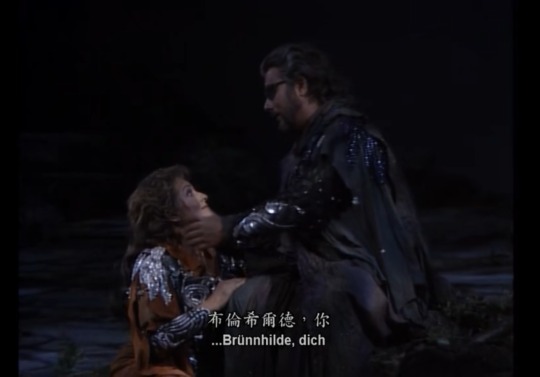

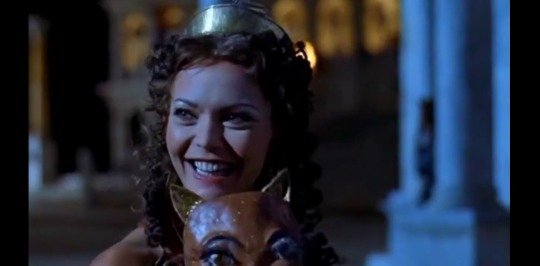
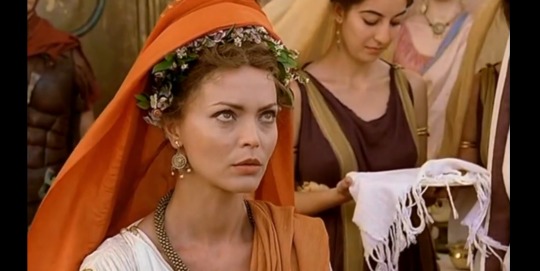
#saera x jaehaerys#saehaerys#fire and blood#der ring des nibelungen#brunnhilde#wotan x brünnhilde#wotan#imperium: augustus#julia the elder#augustus#psychosexual my beloved
5 notes
·
View notes
Text
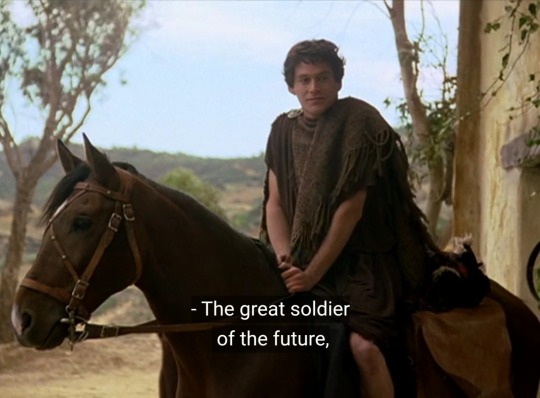

can anyone else see this... i feel crazy
6 notes
·
View notes
Text
My friend (@helldava): You may leave the Teutoburg forest, but the Teutoburg forest does not leave you.
Me: You don't come out of the Teutoburg forest, my friend.
#not incorrect quotes#my quotes#spqr#rome#imperio romano#imperium#roman empire#augustus#teutoburg#teutoburg forest#roman#arminius#gaius julius arminius#latin#roma#history#barbarians#battle of teutoburg#germans#roman soldiers
10 notes
·
View notes
Note
I am unsure about something, are you aware of Horus’ actions after you “died”?

Aurelius went quiet at that. Auramite hands pressed together. He shifted uneasily.
" ... despite my excommunication, I still tried to fight for the Imperium even if erased from records and considered a traitor. I... had seen things, through my divination as the days of what would occur grew closer. "
" I just wished I could have done something. And kept the family together, somehow. Why... why do you ask, stranger? "

#ask answered.#ic / in character.#the forgotten son // primarch aurelius augustus.#forever forgotten // 40k verse.#anonymous.#ask to tag tw#//i imagine with the 2nd legion#//records? full on wiped and erased and just Gotten Rid Of#//but aurelius due to him trying so hard to regain favor with his father pretty much tried to continue fighting in the name of the imperium#//but in his own way; obviously being way more... well. not shitty compared to the imperium's ways#//when the horus heresy came around he was DEVASTATED; he saw bits and pieces of what would occur through his divination#//but man. that shit still hurt him so bad#//while aurelius still sort of focuses on helping mankind#//esp if any of his siblings find him in the 40k-era#//he's weirdly... more neutral? to the chaos-aligned primarchs#//he doesnt really attack if he doesnt have to; if only bc he just feels like he doesnt have anything left anyways. what else can they take#//from him?#//he literally just tries to keep being a brother and admits that while he still will help the imperium#//he cant. do anything. and all he wants is to just be a brother
1 note
·
View note
Note
I just finished reading the Masters of Rome series and all of Mary Renault's books set in ancient Greece, the Alexander trilogy, and the Theseus duology, and a few by Valerio Massimo Manfredi. Do you have any recommendations for similar books or series that you've enjoyed?
i think i've answered something similar about historical fiction somewhere in /tagged/book list so i will tag this post w that so you can maybe find a more detailed answer. but. yeah here is some!
the cicero trilogy (imperium, lustrum, dictator) by robert harris <- cicero is there. if you got Really into masters of rome you might get pissed off at some of the oversimplification of politics but the cicero characterisation is Really good and also they are Fun
roma sub rosa series by steven saylor <- roman republic detective novels that turned me into The catilina apologist i am today + there are a LOT of them + yes the major historical ficgures are cool but you Will get invested in this fictional detective's wild family drama
rome trilogy?? (the key, the lock, the door in the wall) by benita kane jaro <- do it for him (caelius the world's most unreliable narrator)
augustus by john williams <- epistolary novel about Him composed of made up sources. fun.
the ides of march by thornton wilder <- also in epistolary format but with wild timeline shenanigans? i enjoyed it
dancing with the lion series by jeanne reames <- about the early life of alexander the great + they are just so detailed + i read the first book in one (1) day
the golden mean by annabel lyon <- i have not actually read this but it's been on my tbr for like one million years. about aristotle and alexander the great and maybe i will get round to it this year :/
lavinia by ursula k. le guin <- i think this is the most similar to the theseus duology in occupying a fictional space between myth and history. if that makes sense. i also read it in one (1) day
mutuals if you have any other historical fiction recommendations hi hello eye emoji ?
209 notes
·
View notes
Text
IULLUS ANTONIUS: Antony's only surviving son
He was the son of the Triumvir Mark Antony and his second wife Fulvia Flacca Bambula.
He was raised in his father's divorced wife Octavia's household after he was orphaned when his father committed suicide following his defeat at the battle of Actium in 30 BC.
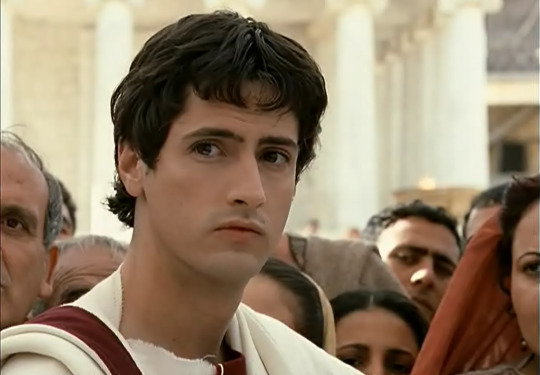
Iullus was to leave for Alexandria along with this elder brother Marcus Antonius Antyllus according to their father's wishes sometime in 34 BC, but for reasons unknown, his stepmother Octavia only sent Antyllus and kept him with her.
Named after Julius Caesar by his father, Iullus married his stepsister Claudia Marcella Major after her divorce from Agrippa in 21 BC. He became praetor in 13 BC, consul in 10 BC and Asian proconsul in 7 BC and was said to be highly regarded by Augustus. He is mentioned by Horace in his own poetry where he speaks of an occasion when Iullus intended to write a higher kind of poetry praising Augustus for his alleged success in Gaul. Iullus was a poet and is credited with having written twelve volumes of poetry on Diomedia sometime before 13 BC, which were destroyed after his death.
Although when it began is unsure, Iullus became a lover of Julia the Elder. Marcus Agrippa died in 12 BC and Julia had been forced to remarry her stepbrother, Tiberius. Julia's marriage to her stepbrother had become a disaster and she was desperate to divorce him. Tiberius had left Rome in 8 BC leaving Julia and her five children by Agrippa, Gaius Caesar, Lucius Caesar, Julia the Younger, Agrippina the Elder, and Agrippa Postumus, in Rome. Julia felt that her children were unprotected and may have approached Iullus to be a protector for her children, especially her two elder sons, Gaius Caesar and Lucius Caesar, who were Augustus' joint heirs.
Tacitus censures Augustus in “calling, as he did, a vice so habitual among men and women by the awful name of sacrilege and treason, he went far beyond the indulgent spirit of our ancestors, beyond indeed his own legislation.”
In the telling of Cassius Dio:
when [Augustus] at length discovered that his daughter Julia was so dissolute in her conduct as actually to take part in revels and drinking bouts at night in the Forum and on the very rostra, he became exceedingly angry. He had surmised even before this time that she was not leading a straight life but refused to believe it. For those who hold positions of command, it appears, are acquainted with everything else better than with their own affairs; and although their own deeds do not escape the knowledge of their associates, they have no precise information regarding what their associates do. In the present instance, when Augustus learned what was going on, he gave way to a rage so violent that he could not keep the matter to himself but went so far as to communicate it to senate. As a result, Julia was banished to the island of Pandateria, lying off Campania, and her mother Scribonia voluntarily accompanied her. Of the men who had enjoyed her favours, Iullus Antonius, on the ground that his conduct had been prompted by designs upon the monarchy, was put to death along with other prominent persons, while the remainder were banished to islands. And since there was a tribune among them, he was not tried until he had completed his term of office. As a result of this affair many other women, too, were accused of similar behaviour, but the emperor would not entertain all the suits; instead, he set a definite date as a limit and forbade all prying into what had occurred previous to that time. For although in the case of his daughter he would show no mercy, remarking that he would rather have been Phoebe’s father than hers, he nevertheless was disposed to spare the rest. This Phoebe had been a freedwoman of Julia’s and her accomplice and had voluntarily taken her own life before she could be punished. It was for this that Augustus praised her.
Both contemporary and modern historians have suggested Iullus had designs upon the monarchy and wanted to marry Julia before her children Gaius and Lucius came of age possibly to form some sort of regency. Although no substantial evidence was ever provided by Augustus for such a claim. It is possible that she planned to divorce Tiberius and make Iullus Antonius protector of her sons.
The scandal finally broke in 2 BC, Augustus took action on his daughter Julia's alleged promiscuity. Iullus was exposed as her prominent lover. The other men accused of adultery with Julia were exiled but Iullus was not so lucky. He was charged with treason and sentenced to death. He was either executed or according to Velleius Paterculus, died by his own hand rather than be humiliated by execution.
He had at least 3 children with Claudia Marcella, namely Iullus Antonius, Lucius Antonius and Iulla Antonia.
Image: Juan Diego Botto as Iullus Antonius in Imperium: Augustus
#iullus antonius#marcus antonius#mark antony#augustus#octavian#fulvia#rome#roman history#ancient rome#roman republic#roman empire#imperium augustus#tv shows
10 notes
·
View notes
Note
Sertorious, Lucullus, Ventidius, Sex. Pompey and Tiberius enter an underrappreciated roman generals competition. Who wins best general? (And why isn't it Tiberius so he can forever keep being the guy nobody appreciated)
What counts as "underrated" here?
No members of the first or second triumvirate, nor Marius or Sulla, who are almost as well-known, at least on classics Tumblr.
Primary military campaigns must have occurred between 133 and 27 BCE. (This rules out Tiberius.)
No one who is likely to show up in a blockbuster movie or miniseries. (This rules out Agrippa, who appeared in Cleopatra (1963) and Imperium: Augustus.)
#i was so tempted to include cicero as a joke option but he would've won#also was tempted to include octavian since i actually do think his military ability is underrated. but he's too famous#lol tiberius doesn't even get to be in the underrated generals poll#polls#just roman asks
68 notes
·
View notes
Text
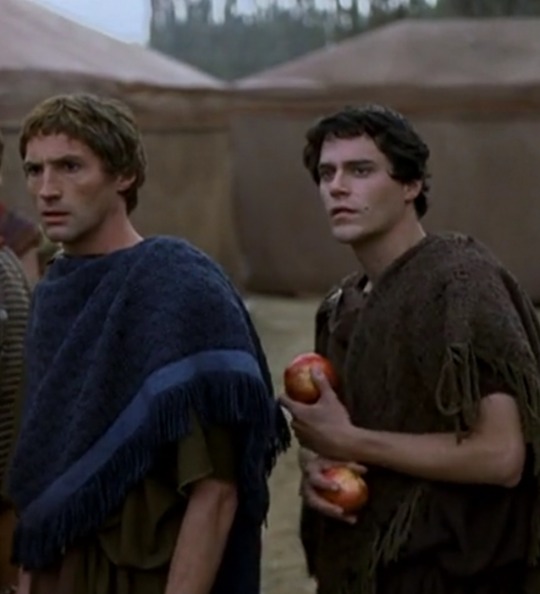
him apples btw
#sorry still not over this movie#octavian#agrippa#look at my romans boy#imperium augustus#imperiumposting
12 notes
·
View notes
Photo
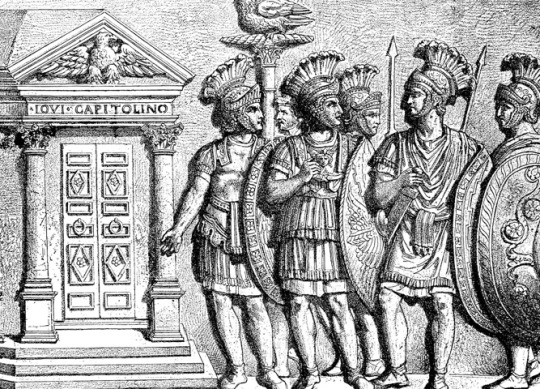
The Rise and Fall of The Praetorian Guard
THE PRAETORIAN GUARD WERE AN ELITE UNIT WITHIN THE IMPERIAL ARMY, SERVING PRIMARILY AS PERSONAL PROTECTORS AND INTELLIGENCE OPERATIVES FOR THE ROMAN EMPERORS.
The roots of the guard can be found during the Roman Republic, when soldiers served as protectors for Roman generals and important figures, or as elite guards for military praetors.
High-ranked generals with imperium held public office by serving as a magistrate or promagistrate. They were assigned a civil servant, lictors, to serve as an attendant and bodyguard. Where no personal bodyguard was assigned, senior field officers safeguarded themselves with temporary bodyguard units of selected soldiers.
Around 40 BC, Octavian, who would later become Emperor Caesar Augustus, installed praetorians within the pomerium (a religious boundary around the city of Rome), the first example of troops being permanently garrisoned in Rome proper.
Members of the guard accompanied Augustus on active campaigns, protecting the civic administrations and rule of law. At camp, the cohors praetoria (a cohort of praetorians guarding the commander), were posted near the praetorium, the tent of the commander, which the guard is believed to be named after.
After the construction of Rome’s Praetorian camp known as the Castra Praetoria around 23 BC, their role extended to escorting the emperor and the members of the imperial family, and to serve as a policing force during times of riot.
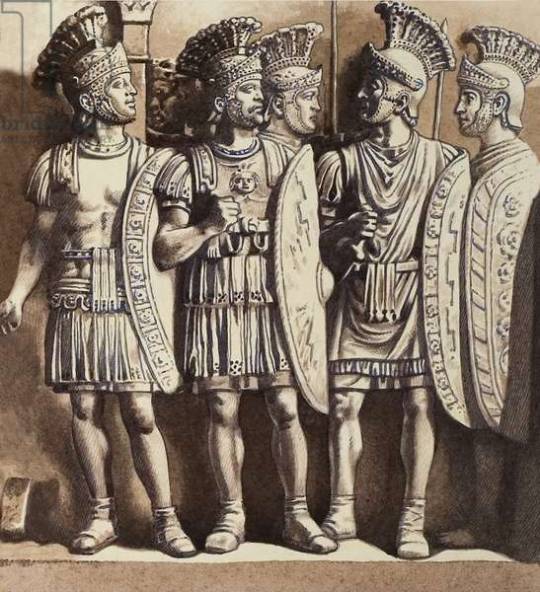
According to the Roman historian and politician, Tacitus, the guard around this time numbered nine Praetorian cohorts (4500 men, the equivalent of a legion), however, an inscription from near the end of Augustus’s rule suggests that their numbers were briefly increased to twelve.
The Praetorian Guard, like all legionaries, shared similar insignia, mainly on their shields. Praetorian Guard shields included wings and thunderbolts, referring to Jupiter, and also uniquely included scorpions, stars and crescents.
The first military engagement of the Praetorian Guard took place during the mutinies of Pannonia and the mutinies of Germania. Drusus Julius Caesar, son of Tiberius, accompanied by two Praetorian cohorts, the Praetorian Cavalry, and Imperial German Bodyguards, suppressed the mutinies of Pannonia. Germanicus, later known as Germanicus Julius Caesar, led a force of legions and detachments of the Praetorian Guard in a two-year campaign in Germania against the uprising.
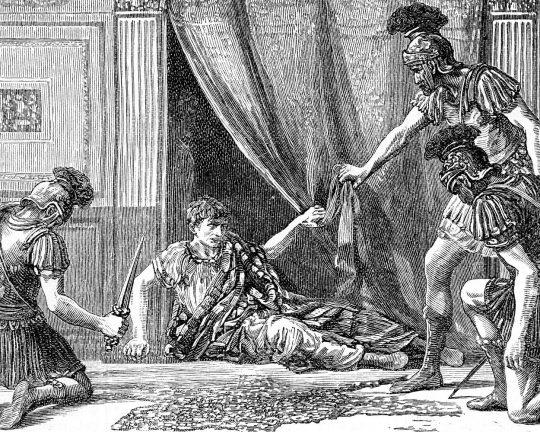
In the three centuries that followed, the guard influenced imperial politics by overthrowing emperors and proclaiming the successor. Members of the guard were also directly involved in the assassination of emperors, such as: Aurelian, Balbinus, Caligula, Caracalla, Commodus, Elagabalus, Galba, Pupienus, Pertinax, Philip II, and Probus.
In AD 305, Diocletian and Maximian abdicated, and the former Caesares, Constantius and Galerius became Augusti. Although two sons of emperors, Constantine I and Maxentius were eligible, they were passed over for a new tetrarchy, and Valerius Severus and Maximinus Daza were appointed Caesars.
Severus planned to disband the Praetorian Guard on the orders of Galerius, resulting in the guard giving their allegiance to Maxentius and proclaiming him emperor. By AD 312, Constantine I marched on Rome with a force of 40,000 soldiers to eliminate Maxentius, facing off against an army that encompassed the bulk of the Praetorian Guard garrisoned in Rome at the Battle of the Milvian Bridge on the River Tiber.

Contemporary accounts record Maxentius’s forces being pushed back against the river and retreating across the bridge. The weight of soldiers fleeing caused the bridge to collapse, stranding elements of the guard on the northern bank of the river who were either killed or taken prisoner.
Lucius Caecilius Firmianus, a Christian author and advisor to Constantine recorded the events: “The bridge in his rear was broken down. At sight of that the battle grew hotter. The hand of the Lord prevailed, and the forces of Maxentius were routed. He fled towards the broken bridge; but the multitude pressing on him, he was driven headlong into the Tiber [drowned].”
Maxentius’ body was fished out of the Tiber and decapitated, and his head was paraded through the streets of Rome. Supporters of Maxentius were eliminated and the Praetorian Guard and Imperial Horse Guard were disbanded. The remaining guard were sent in exile to the corners of the empire, and the Castra Praetoria was dismantled in a grand gesture that marked the end of the Praetorians.
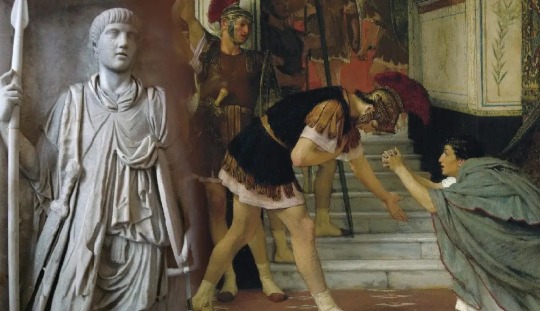
#The Rise and Fall of The Praetorian Guard#The Imperial Army#The Imperial Guard#The Roman Legion#history#history news#ancient history#ancient culture#ancient civilizations#ancient rome#roman history#roman empire#roman emperor#long post#long reads
81 notes
·
View notes
Note
gently begging you for agrippa/octavian reading recs (fiction or non fiction… whatever!)
it's not a reading rec, but have you watched imperium: augustus




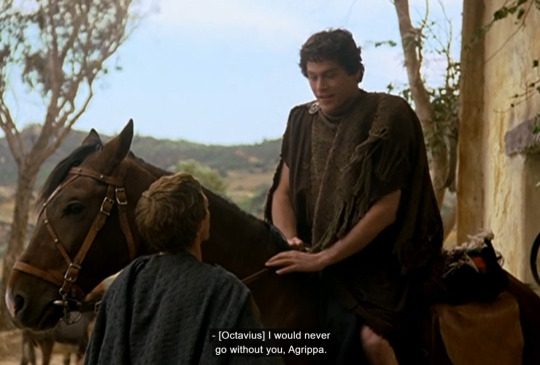

the only reading rec I have right now are the usual ancient sources and that recently I just finished reading Adrian Goldsworthy's Augustus biography, and also a bunch of dots I'm connecting in my mind between Cassius and Agrippa and Macro like

if anyone else has reading recs, feel free to drop them :)
55 notes
·
View notes
Note
Hello! I'm really interested in ancient rome and would love to watch some shows or films based on it. Not anything educational but more so entertaining so do you have any recs? What are your favorite pieces of media about this time period?
Oh this is my personal playground lol here are some:
For tv:
Rome HBO of course is a must watch
I, Claudius too is one that will come up a lot, but keep in mind that it's an old made for tv production so it's very dated in terms of production (but so influential that it's not as dated as it could've been in terms of writing - save for how sexist it is lol)
Domina SKY is very much I, Claudius: Girlboss Edition, recommend if you love awful women and awful marriages
I adore Spartacus! It's very stylized and not for everyone, but I loooove it. Recommend if you like Black Sails because it has similar themes
Britannia, Romulus and Barbarians are ones that I either haven't got around to watch or fell behind but they are worth it afiak
For movies:
Imperium: Augustus and Imperium: Nero are.... everything to me. Especially the later. Doesn't mean that they are good lol but if you love messy families as much as I do then this is it
Il Primo Re is about Romulus and Remus, it's shot entirely in latin and it's soooo good
Any movie about Cleopatra? I'm partial to the liz taylor version from 1963, but if 4-hour long old hollywood epics aren't your thing then go with the one from 1999
Speaking of old hollywood, Julius Caesar 1953, especially if you're a Shakespeare nerd. If you can get your hands on the national theatre production of Antony and Cleopatra w/ Ralph Fiennes and Sophie Okonedo, do it!!! It's my favorite
Hannibal: Rome's Worst Nightmare is a documentary I guess but it's entertaining to ME Alexander Siddig is perfect in it
Gladiator gets soo many points for "not educational but entertaining"
Agora with Rachel Weisz and Oscar Isaac!!
#look at how normal i am not recommending caligula 1979#anyway definitely start w/ rome hbo if you haven't watched it already
27 notes
·
View notes